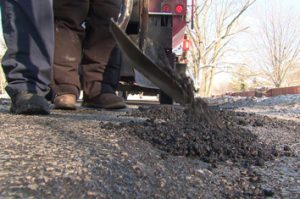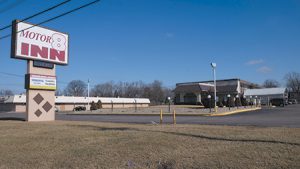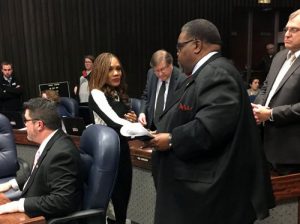
Hogsett proposes draining rainy day fund to infuse $14M into road repair
Hogsett called the condition of local roads “deplorable” and vowed to “return our streets to safe, passable condition.” Since Jan. 1., the city has received more than 12,000 repair requests for potholes.





